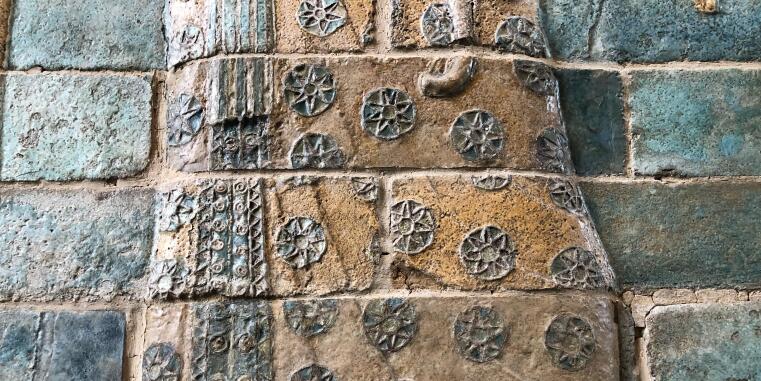
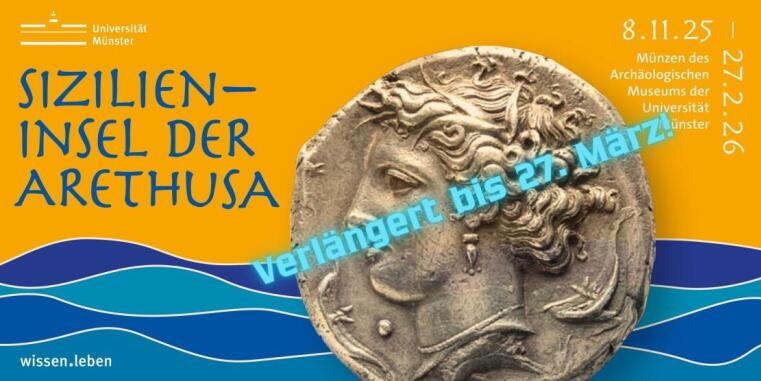


To support students from the institutes affiliated with the GKM, we are awarding an essay award for outstanding student work (in two categories) for the first time in 2026.
‘Starter’ – for term papers from the first semesters up to the B.A. degree or up to the intermediate examination.
‘Advanced’ – for bachelor's theses and term papers at master's degree level.
The award ceremony for the winners will take place at the GKM general meeting in the winter semester 2026/27.
Eligibility requirements
All students who have submitted a term paper or bachelor's thesis at one of the institutes affiliated with the GKM in the summer semester of 2025, winter semester of 2025/26 or summer semester of 2026 are eligible to participate.
Applications are only possible upon recommendation by the lecturer or supervisor.
Submission deadline: 30 September 2026.
Texts must be submitted as PDF documents to gkm@uni-muenster.de.
If you have any questions about the essay prize, please contact Dr Nikola Moustakis.
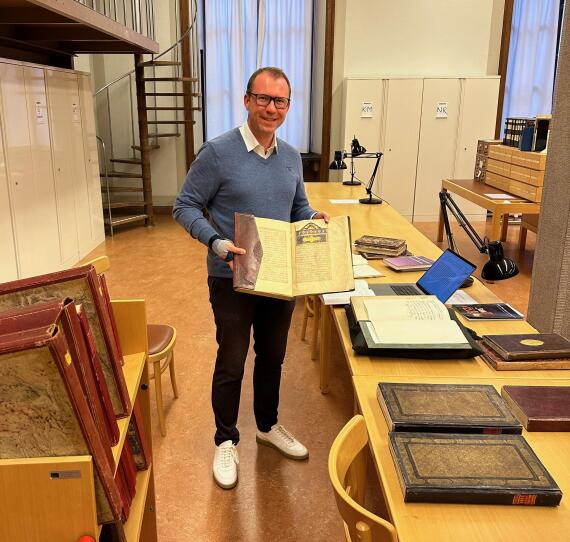
The next general meeting will take place on Thursday, 7 May 2026, at 6 p.m. sharp in the Faculty of Protestant Theology (ETh 102
Doctoral candidates and advanced master's students at the university in the field of theology and religious studies have the unique opportunity to present a paper at the Spring Conference of NOSTER (Netherlands School for Advanced Studies in Theology and Religion), which will take place in Münster from April 15 to 17, 2026. This opportunity has been made possible by a memorandum of understanding between the GKM and NOSTER.
There are two formats: Conference presentation 45 min (20 min presentation, 25 min discussion) and – for doctoral candidates and students at an advanced stage of their qualification work – Senior Peer Review 60 min (10 min presentation, 20 min response, 30 min discussion).
Registration is open until 26th February.
Present the theses of your work for discussion and engage in conversation with other researchers in the field of theology and religious studies from the Netherlands and Germany!
The Centre for Eastern Mediterranean History and Culture (GKM) brings together all ancient studies at the University of Münster. Among the disciplines involved, the multitude of ancient philologies, archaeologies as well as Christian and Islamic theology and Jewish studies are particularly noteworthy.
The GKM is the backbone of the Cluster of Excellence "Religion and Politics", which is now in its third funding phase. In addition to the focus on religion, our members receive substantial third-party funding for archaeological field research projects and in the field of textual research.
With the interdisciplinary Master's programme "Ancient Cultures of the Eastern Mediterranean (AKOEM)" and the graduate school "Münster School of Ancient Cultures (MSAC)", the network is also activated for academic education.
We are ...
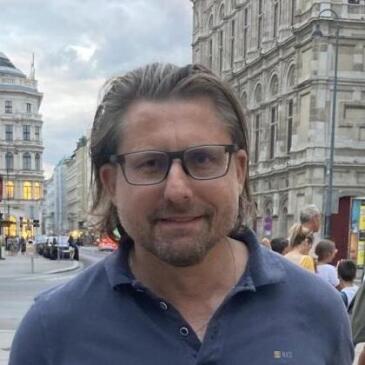
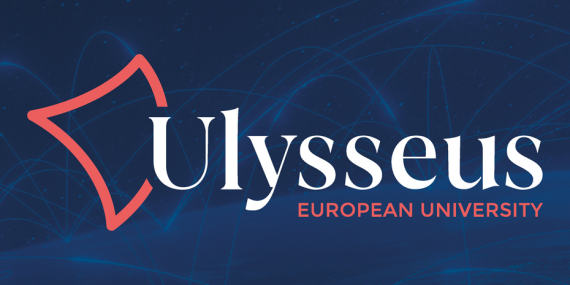
In the winter semester, the seminars and institutes networked in the GKM will once again offer lecture series with speakers from Münster and abroad.
You are cordially invited!
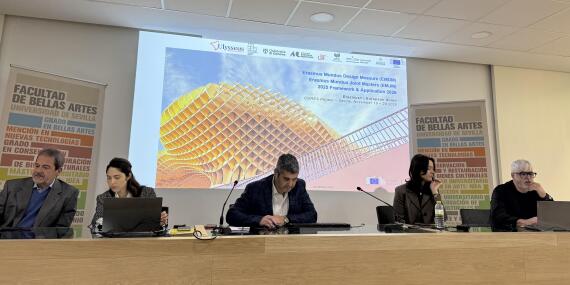

We regularly report on our archaeological field research projects in Turkey, Greece, Israel, Jordan, Armenia, Iraq, and Sudan.
We will post the latest reports here

We are planning a workshop for young researchers at the GKM for the 2026 summer semester entitled “Space and Spatiality as a Prism in the Study of the Ancient Eastern Mediterranean Region.”
What research opportunities do “space and spatiality” offer, and what current theoretical debates are associated with them?
Many of us deal with the topic of “space” in very different ways—archaeologically, historically, theologically, philologically, for example. We would therefore be delighted if some of you would contribute to the workshop. The aim is to bring ongoing projects and research work into an interdisciplinary discourse.
If you are interested, please contact Dr. Moustakis.

Conflicts and disputes threaten human coexistence not only today—their traces reach deep into the past. Archaeological finds and findings prove that violence and war have always been part of human history. The public lecture series with invited guests focuses on the archaeology of conflicts, including the analysis of battlefields and the looting that accompanies wars. The topic is not only relevant across cultures, but also contributes to the theory of collective human violence.
Location: hybrid (F2 in the Fürstenberghaus, Domplatz 20-22 and via Zoom)
Next lecture: 26. January with MICHAEL MEYER (Berlin).
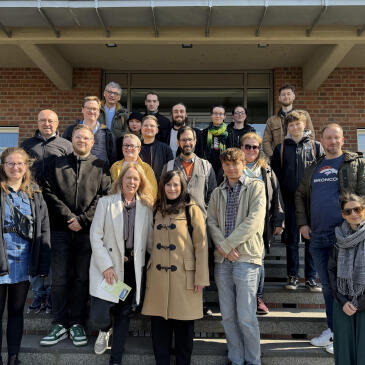
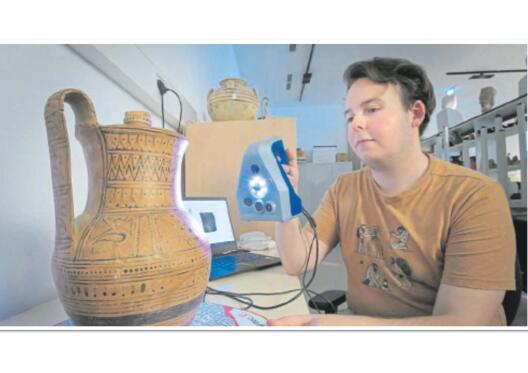
At the Archaeological Museum of the University of Münster, virtual copies are created with the help of a 3D scanner. The scanned objects can be used by experts all over the world. The first vessels, coins, casts and stone fragments have already been recorded. They can now be digitally rotated as desired and viewed from all sides, thus providing far more information than the originals. An EMU image film provides an insight into the newly equipped 3D laboratory of the Archaeological Museum.
The 3D laboratory is located on the ground floor of the Archaeological Museum. Interested visitors can watch the students at work through a glass pane.
Have fun watching the film ... or just come and visit the 3D lab at Münster-Domplatz in person.
Translated with www.DeepL.com/Translator (free version)
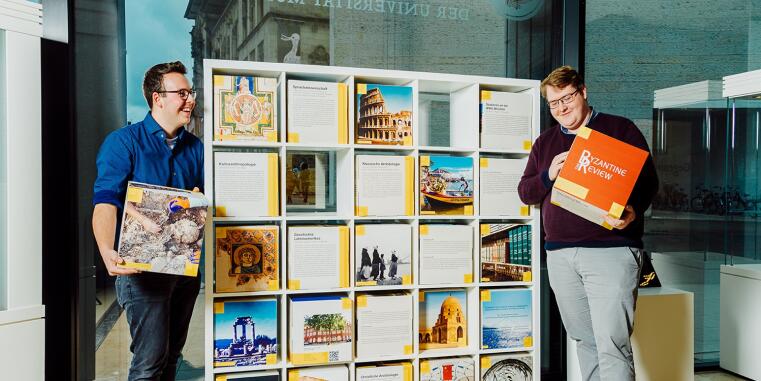
The global world is changing rapidly and constantly. The high level of dynamism is a challenge that needs to be overcome. Armed conflicts, human rights violations and environmental pollution are only three of the social problems for which solutions are needed. The "small subjects" in the humanities make a contribution to this.
In the special exhibition "WeltWeit Unverzichtbar. Kleine Fächer für große Themen", we showed in the Archaeological Museum of Münster University showed how global phenomena can be better understood. In the meantime, this special exhibition has become a digital exhibition that is continuously being expanded.
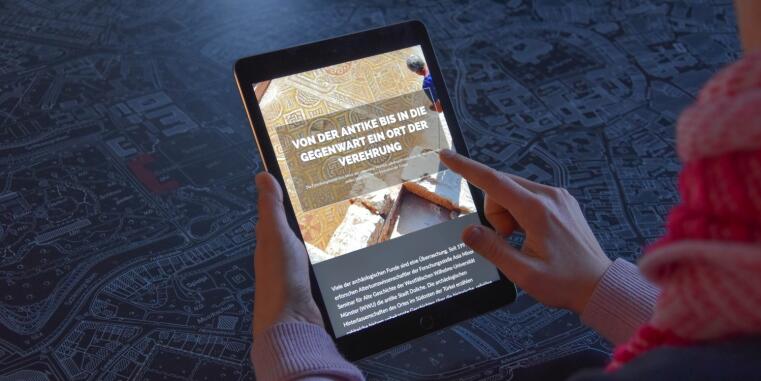
Documentation and analysis kits, multimedia reports and online learning platforms: Digital Humanities is a highly dynamic field of research for the Classical Studies that combines the cognitive interests of the humanities and cultural studies with the data-processing methods of computer science.
Digital working methods and techniques can considerably simplify and accelerate scientific work. This makes completely new questions possible. Digital technologies are playing a steadily growing role in archaeology in particular, and are being used in projects at the University of Münster.
The digitisation of texts, the creation of complex digital editions and the production of corpora that can be analysed by machine are a basis for future-oriented research in the text sciences. Digital technology supports processes that previously had to be carried out in laborious manual work. Digitisation offers new possibilities for the presentation and publication of material, making research results more accessible, especially to the public.
These developments in research and teaching in Classics at the University of Münster aim to give students an understanding of digitality that will enable them to act in relation to new technologies and the associated changes in the humanities disciplines.